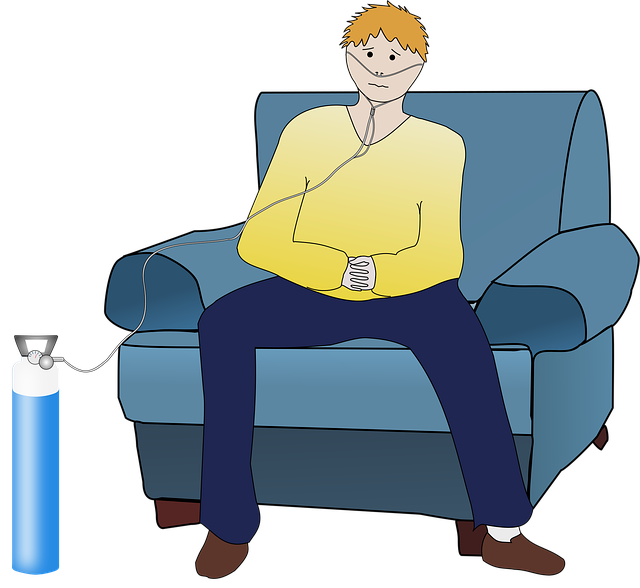EMDR & CBT: Trauma Healing in Chandler AZ

In Chandler, AZ, specialized trauma therapy using evidence-based techniques like EMDR and TF-CBT hel…….
In today’s complex social landscape, mental health support has become an indispensable aspect of overall well-being, particularly for individuals who have experienced traumatic events. Among various therapeutic interventions, PTSD (Post-Traumatic Stress Disorder) counseling holds a significant place, and its application in Chandler, Arizona, is a growing area of interest. This article aims to delve into the intricacies of PTSD counseling specifically tailored to Chandler, AZ, exploring its definition, impact, and the multifaceted aspects that contribute to its importance. By examining various facets, from historical context to technological innovations, we will provide readers with an in-depth understanding of this vital mental health service.
PTSD counseling, in the specific context of Chandler, AZ, refers to a specialized therapeutic approach designed to assist individuals who have experienced traumatic events and are struggling with the subsequent psychological impacts. It is a form of psychotherapy that focuses on helping clients process and overcome symptoms associated with PTSD, such as flashbacks, nightmares, avoidance behaviors, and heightened anxiety or irritability.
The core components of PTSD counseling typically include:
The concept of PTSD counseling has evolved over several decades, mirroring advancements in the understanding of trauma and its impact on mental health. The term “PTSD” was first coined in the 1980s during a time when soldiers returning from combat were observed exhibiting severe psychological reactions to their traumatic experiences. Prior to this, similar conditions were recognized but lacked a unified diagnosis.
Over the years, PTSD counseling has been refined and backed by extensive research, leading to its widespread adoption in various healthcare settings, including community clinics, hospitals, and specialized mental health centers like those found in Chandler, AZ. The integration of evidence-based practices has significantly improved treatment outcomes for individuals with PTSD.
PTSD counseling, as a therapeutic modality, has transcended geographical boundaries, gaining global recognition and adoption. The impact of this counseling approach is evident across diverse cultures and regions, offering hope and healing to countless individuals affected by trauma.
Key trends shaping global PTSD counseling include:
The implementation and availability of PTSD counseling vary across regions due to factors such as cultural norms, healthcare infrastructure, and funding. For instance:
The economic landscape of PTSD counseling is dynamic and influenced by various factors:
Economically, PTSD counseling offers significant benefits:
Technology has revolutionized the delivery of PTSD counseling through digital platforms, making therapy more accessible and convenient:
Technological advancements have had a profound impact on PTSD counseling:
The provision of PTSD counseling is governed by various policies and regulations that ensure ethical practice and quality care:
Policies and regulations play a pivotal role in shaping the development and practice of PTSD counseling:
One of the primary challenges in PTSD counseling is ensuring equal access to these services:
Addressing these challenges requires a multi-faceted approach:
The following case studies illustrate successful implementations of PTSD counseling in Chandler, AZ, and the positive outcomes achieved:
Case Study 1: Veterans Support Group
Chandler’s VA (Department of Veterans Affairs) clinic organized weekly support groups for veterans struggling with PTSD. The group therapy sessions focused on cognitive behavioral techniques and peer support. Results showed significant improvements in symptom severity, with many veterans reporting better coping mechanisms and enhanced social connections.
Case Study 2: School-Based Counseling Program
A local high school implemented a school counseling program targeting adolescents affected by trauma. Through individual and group therapy sessions, students learned coping strategies and processed traumatic experiences. The program’s success led to increased awareness about youth mental health and improved academic performance among participants.
Case Study 3: Community Trauma Center
The establishment of a community-based trauma center in Chandler provided comprehensive PTSD counseling services to individuals affected by local disasters. Using evidence-based exposure therapy, the center helped residents process their traumatic experiences, leading to better emotional regulation and community resilience.
Looking ahead, the field of PTSD counseling in Chandler, AZ, and beyond is poised for significant growth and evolution:
To capitalize on these future prospects, key strategies include:
PTSD counseling Chandler AZ represents a critical component of mental health support, offering specialized care to individuals navigating the challenges of trauma. This comprehensive overview has highlighted the various facets of PTSD counseling, from its historical roots to technological innovations and global trends. By addressing economic considerations, challenges, and providing real-world examples, we have demonstrated its profound impact on individuals and communities.
As the field continues to evolve, staying informed and adaptable is essential. The future of PTSD counseling holds immense potential for growth, reaching more people in need and enhancing the effectiveness of interventions. With ongoing research, technological advancements, and a commitment to diversity and inclusion, Chandler, AZ, and the broader mental health community can look forward to a brighter, healthier future.
Q: What is PTSD, and how does it differ from regular stress or anxiety?
A: PTSD, or Post-Traumatic Stress Disorder, is a mental health condition that develops in some people who have experienced or witnessed a traumatic event. It differs from regular stress or anxiety as it involves intense, persistent symptoms that interfere with daily life and can include flashbacks, nightmares, and severe anxiety.
Q: Who can benefit from PTSD counseling?
A: Anyone who has experienced or is currently dealing with trauma can benefit from PTSD counseling. This includes veterans, survivors of natural disasters, sexual assault victims, and individuals who have witnessed violent events.
Q: How effective is PTSD counseling, and what evidence supports its use?
A: Numerous studies have shown the effectiveness of PTSD counseling. Evidence-based practices like CBT and EMDR have been extensively researched and proven to reduce symptoms of PTSD significantly. The positive outcomes from case studies and clinical trials provide strong support for its use.
Q: Can technology really replace in-person therapy sessions?
A: While technology can enhance access to counseling, it is not a replacement for in-person therapy. Digital platforms are best used as supplements or for individuals who prefer remote services. Face-to-face interactions remain crucial for building therapeutic relationships and providing comprehensive care.
Q: How do I find a qualified PTSD counselor in Chandler, AZ?
A: You can start by consulting with your primary healthcare provider or local mental health organizations. Reputable online directories and referrals from trusted sources can also help you locate licensed and experienced counselors specializing in PTSD treatment.

In Chandler, AZ, specialized trauma therapy using evidence-based techniques like EMDR and TF-CBT hel…….

Post-traumatic stress disorder (PTSD) is a severe mental health condition caused by traumatic events…….

In Chandler, Arizona, specialized trauma therapy services utilize evidence-based approaches like EMD…….

Post-traumatic stress disorder (PTSD) is a mental health condition caused by traumatic events, leadi…….

PTSD treatment Chandler utilizes evidence-based therapies like EMDR and trauma-focused CBT to help i…….

Individuals in Chandler, AZ, struggling with PTSD have access to specialized therapy options like EM…….

PTSD counseling Chandler, AZ offers specialized support using evidence-based techniques like EMDR an…….

Post-traumatic stress disorder (PTSD) is a debilitating mental health condition that requires specia…….

PTSD treatment Chandler utilizes evidence-based approaches like EMDR and trauma-focused CBT to addre…….